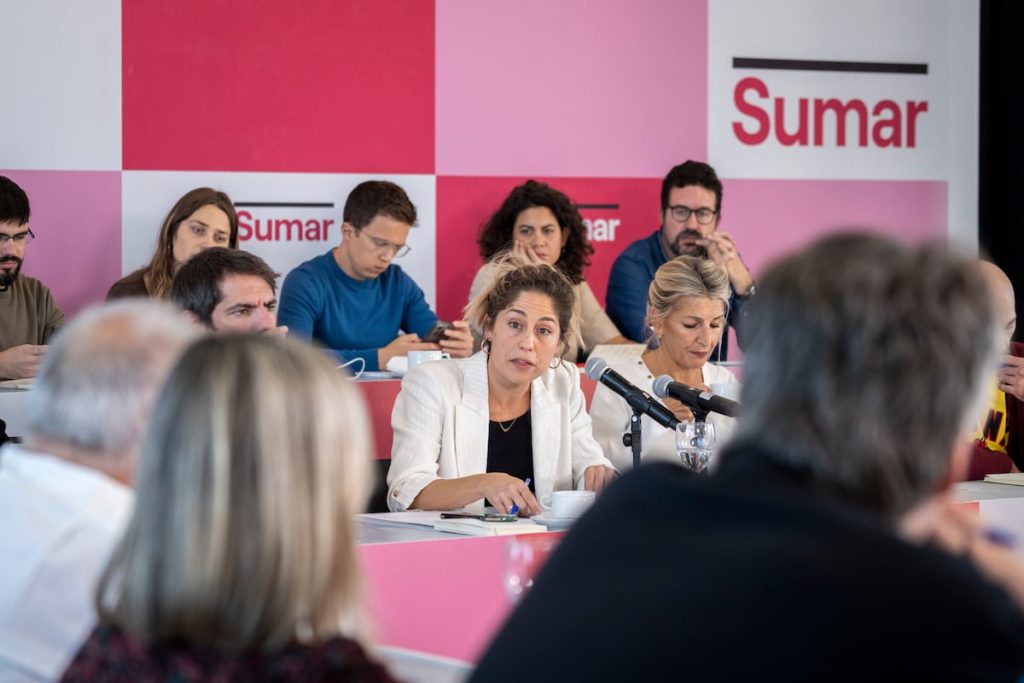Sumar will hold its assembly on the 14th and 15th of December to decide the organization’s direction. The decision was made by the party’s coordinating group after a meeting held in the Círculo de Bellas Artes in Madrid. This assembly comes after Yolanda Díaz stepped down from the leadership of the party in June due to poor results in the European elections and discontent among the coalition parties over how negotiations and decision-making were conducted in Congress. The upcoming assembly in the capital at the end of the year will serve to define a new organizational document and update the political agenda. Sumar must clarify the role of the vice president in the party, decide on the leadership model, and establish strategies for implementation in various territories. The party has decided not to include other coalition parties such as Izquierda Unida, Catalunya en Comú, Más Madrid, and Verdes Equo in its structures, as initially planned in the founding texts approved in March.
Regardless of who succeeds in the coordination role, if the party opts for a single figure, there is no doubt within the leadership that Yolanda Díaz will continue to exercise public leadership through her position as Second Vice President of the Government. This is seen as the party’s most valuable electoral asset. In June, the coordination was entrusted to four allies of the minister: the current head of Organization, Lara Hernández; the Communication director, Elizabeth Duval; the general secretary of the parliamentary group, Txema Guijarro; and the Secretary of State for Social Rights, Rosa Martínez. Beyond organizational matters, Sumar prioritizes advancing its government agenda. The party aims to address major issues affecting Spaniards, such as labor reform (a key objective of the Labor Department this term, which the minister sees as closer due to pressure from social forces), housing access, and work-life balance. The party aims to lead discussions on these issues and shape public discourse.
Sumar is working to build its organization in various territories, with Sumar Galicia set to hold its assembly on November 23rd and the brand registered in Euskadi, which will do the same on November 30th. The party is also striving to overcome the crisis it is currently facing. In less than a year, between July 2023 and June 2024, Sumar lost 70% of its votes and has struggled to maintain visibility in the Government. The party’s split from Podemos also took a toll, with the European parliamentary elections in June resulting in Irene Montero’s candidacy securing two seats compared to Sumar’s three, leading to Díaz’s resignation. At the start of the PCE annual celebration, discussions around unity took center stage, although the full cooperation of all parties could not be achieved due to the absence of Sumar’s co-spokesperson at the event. The focus is now on forging alliances and moving forward collectively to better serve the people.
During the PCE event, discussions touched on the transition from defense to offense, emphasizing the need for unity and democratic methods to integrate all parties effectively. Antonio Maíllo, federal coordinator of IU, stressed the importance of setting an example and building spaces for politics based on coherence. He emphasized the need for democratic methods to ensure the majority and minority positions within the coalition are acknowledged. The conversations also included critiques of Podemos, with various speakers highlighting the need for solidarity and strategic engagement to effectively engage with the PSOE, urging a united front to push for progress and defend democratic values. Despite challenges and disagreements, the focus remains on working together to advance societal progress and preserve hard-won rights and freedoms.


